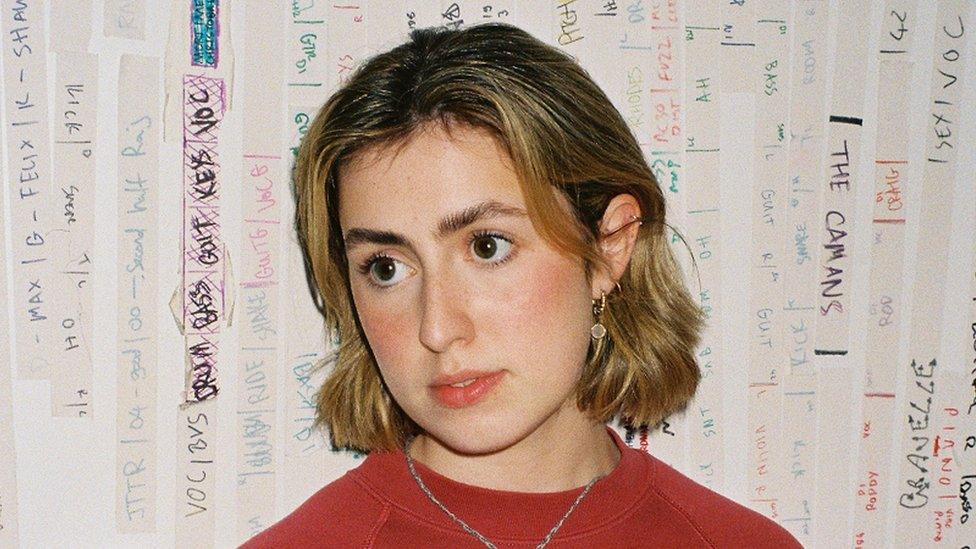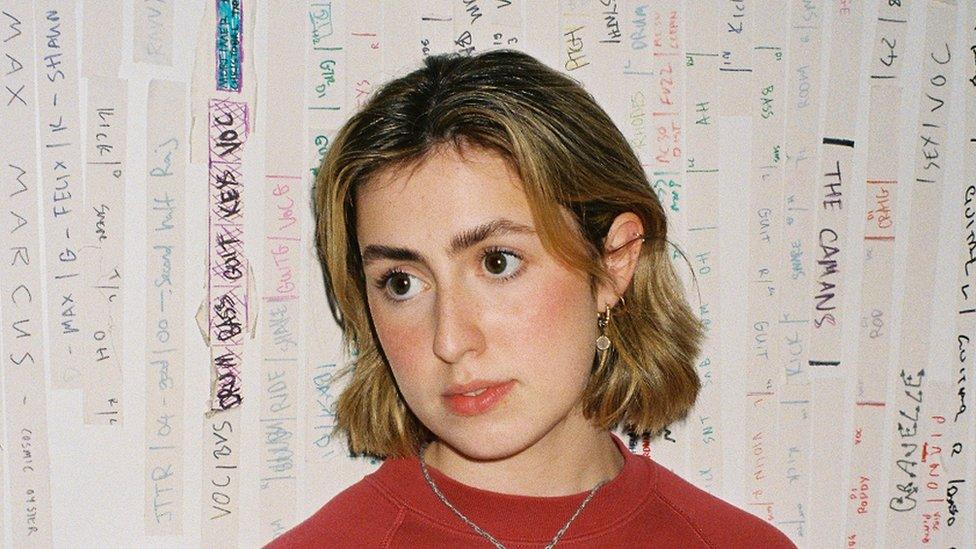UK chart: One in four top 40 songs samples older track
- Published

Issey Cross' summer anthem Bittersweet Goodbye has been streamed millions of times
Heard this one before? If you're a music fan it's a question you might have been asking yourself recently.
More and more artists seem to be using samples - snippets of older tracks - to create new ones.
From Nicki Minaj and Ice Spice's Barbie World to Issey Cross' Bittersweet Goodbye, our summer playlists have been full of throwbacks.
And analysis shared with BBC Newsbeat shows that about one in four current UK Top 40 hits uses samples.
Press replay
Data from the Official Charts Company and website whosampled.com, external suggests as many as one in four tracks in the chart make use of retro tracks.
This week's number two, Doja Cat's Paint The Town Red, samples Walk on By, first released by Dionne Warwick in 1964.
Bou's Closer takes us back to the 90s, recycling dance anthem Children by Robert Miles.
And Charlie XCX wants to remind us of Toni Basil's 1981 hit Hey Mickey with Speed Drive, which also samples Robyn's Cobrastyle.
But one of summer's biggest songs based around a sample is Issey Cross's Bittersweet Goodbye, which entered the charts last week at number 31.
The dance track uses the hook from 1997 hit Bittersweet Symphony by The Verve, a track which, ironically, sampled Rolling Stones hit The Last Time.

Ice Spice and Nicki Minaj dominated the charts with their track Barbie World, which sampled Aqua
You might assume that the sampling phenomenon is a result of our current fascination with the 90s and noughties.
Whether it's down to nostalgia or social media exposing a new generation to the era, it's inspiring trends in film, TV and fashion.
And it would be easy to assume the rise in musical throwbacks is simply down to young people rediscovering older music online.
While that's definitely played a part, US journalist Jayson Greene tells BBC Newsbeat the truth "is more interesting than that".
Jayson, who works for respected music website Pitchfork, looked into the issue of "making old hits new again", external.
Blame your lizard brain
His investigation started with music publishing companies - once a "sleepy sector of the music business" but one that's seen big investments recently.
In the US, two firms have snapped up the rights to dozens of tracks by legendary artists such as Bob Marley, Prince, James Brown, and Whitney Houston.
Jayson spoke to their bosses and found that the companies will look for opportunities to promote the material in the hope it gets used.
If it does, they get paid, and the songs that sell are the ones that people already know.
"The most universally recognisable properties are the ones that are being recycled," says Jayson.
Hearing familiar songs "hits like a node in your lizard brain that recognises something you already love", he says.
"And so that song seems more interesting to you than maybe something you've never heard before."
That's good for business, but potentially less beneficial for creativity, says Jayson.
"Because everybody knows them already... nobody has to do any work breaking in a new entity, a new voice," he says.

Katie Gregson-MacLeod says TikTok introduces users to new music
It's only fair to point out that one in four tracks using samples means that the other three are original compositions.
And singer-songwriter Katie Gregson Macleod feels there's still an appetite for original music, especially on social media platforms.
"I think that [TikTok's] proven time and time again that people aren't just looking for the same thing, recycled," she says.
Katie has been writing songs since she was a teenager and balanced her music career between university and a job in an Edinburgh coffee shop.
The Scottish singer finally got her big break last year when her song Complex went viral - and she was then signed to the same record label as Adele and nominated for an Ivor Novello award.
On sampling, Katie says: "I don't know if it's tiresome yet. I think people just love to hear that stuff."
Music journalist Jayson isn't quite so convinced.
"I firmly believe that this sort of nostalgia cycle we're in is just a phase," he says.
"This happens every few years."
He sees similarities with current cinema trends - and suggestions that people are getting tired of superhero movies.
Jayson says lots of people have reacted to his article, and he's noticed an increase in people calling out overuse of samples on social media.
"When people start seeing how the sausage is made, I just think people's reactions to this stuff are starting to indicate that yes, there's got to be a turning of the tide, pretty soon."


Follow Newsbeat on Twitter, external and YouTube, external.
Listen to Newsbeat live at 12:45 and 17:45 weekdays - or listen back here.
- Published28 July 2023

- Published17 July 2023

- Published21 April 2023

- Published1 September 2022
